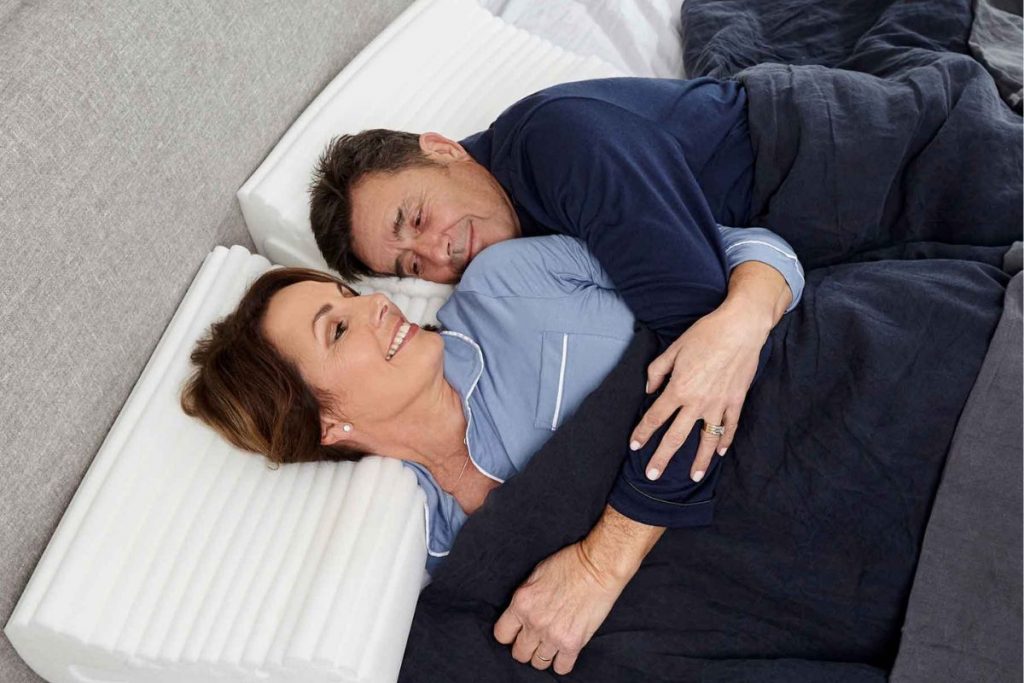It is a common misconception that as people age, they experience a decline in the quality of their sleep.
However, recent research has provided evidence that contradicts this popular belief, demonstrating that older adults may actually enjoy better sleep quality compared to their younger counterparts.
In this comprehensive blog post, we will examine the factors that influence sleep quality among different age groups, particularly focusing on older adults, and shed light on the truth behind the myth of aging and sleep.
The Surprising Truth about Sleep Quality in Older Adults
Contrary to popular belief, recent research has revealed that the quality of sleep may improve as people age. A large-scale survey involving 150,000 adults aged between 18 and 80 found that those aged 70 to 80 reported fewer sleep disturbances compared to the younger participants aged 18 to 24. These findings suggest that sleep quality may actually improve over time, contrary to the conventional wisdom that associates aging with poorer rest.
Factors Affecting Sleep Quality in Middle-Aged Men and Women
The survey also identified some differences in sleep rest between middle-aged men and women. While factors such as menopause and work-related stress are commonly known to influence sleep quality, other health issues, like sleep apnea, can also play a role in disrupting sleep. Furthermore, mental health conditions such as depression can have a significant impact on the quality of rest.
Understanding the Importance of Sleep
These findings emphasize the importance of re-evaluating our understanding of sleep and aging. It is essential to recognize that sleep quality is not solely determined by age, but rather by various factors, including physical and mental health. Sleep is crucial for maintaining overall well-being, as it not only provides rest and recovery but also supports the immune system's responses.
As the necessary amount of sleep may decrease with age, the quality of sleep appears to increase. This challenges the widely-held belief that older individuals are inherently prone to sleep disturbances, and it is important to debunk this myth in order to avoid perpetuating misconceptions and overlooking potential health issues.
Health Problems and Sleep Quality in Older Adults
When older individuals experience sleep problems, it is important not to simply attribute these issues to the natural aging process. Instead, it is crucial to consider the possibility that underlying health problems may be contributing to sleep disturbances. In such cases, it is vital to consult with a healthcare professional to receive appropriate treatment and guidance.

Sleep Quality and Self-Care
Being aware of the latest research on sleep and aging can help you monitor and evaluate your own sleep quality more effectively. If you are generally healthy, you should enjoy a good night's sleep without any concerns. However, if you notice consistent disturbances in your sleep patterns, it may be a sign of underlying health issues that require professional attention.
Tips for Maintaining Good Sleep Quality and healthy rest habits in Older Adults
- Create a consistent rest schedule: Going to bed and waking up at the same time each day can help regulate your body's internal clock and improve rest quality.
- Avoid large meals before going to sleep.
- Establish a relaxing bedtime routine: Engaging in calming activities such as reading, taking a warm bath, or practising deep breathing exercises can help signal your body that it's time to sleep.
- Optimize your sleep environment: Ensure your bedroom is conducive to sleep by maintaining a comfortable temperature, minimizing noise and light, and investing in a comfortable mattress and pillows.
- Limit caffeine and alcohol consumption: Consuming these substances, especially in the evening, can disrupt rest patterns and reduce rest quality.
- Stay physically active: Regular exercise can help improve sleep quality, but be sure to complete any vigorous activities at least a few hours before bedtime.
- Manage stress: Practicing stress-reduction techniques, such as meditation, yoga, or mindfulness,
- Adding Comfortable Sleeping Pillows that align your spine properly.
Do you want to learn more? Read our Frequently Asked Questions for...
Breaking bad sleep habits can be challenging, but with some simple changes, you can improve your sleep routine. Firstly, it's important to establish a consistent sleep schedule. Try to go to bed and wake up at the same time every day, even on weekends. This helps regulate your body's internal clock and promotes better sleep. Secondly, create a relaxing bedtime routine. Engage in activities that help you unwind, such as reading a book or taking a warm bath. Avoid stimulating activities like using electronic devices or watching TV before bed, as they can interfere with your sleep. Additionally, make your bedroom a sleep-friendly environment by keeping it cool, dark, and quiet. Investing in a comfortable mattress and pillows can also enhance your sleep quality. Lastly, limit caffeine and alcohol intake, especially close to bedtime, as they can disrupt your sleep patterns. By implementing these changes and being consistent, you can gradually break bad sleep habits and improve your overall sleep quality.
Remember, breaking bad sleep habits takes time and patience. It's important to be consistent with your new sleep routine and give your body time to adjust. If you continue to struggle with sleep, it may be helpful to consult a healthcare professional for further guidance and support.
 0
0 0
0To increase the time you spend in bed, there are a few simple steps you can take. Firstly, establish a consistent sleep schedule by going to bed and waking up at the same time every day, even on weekends. This helps regulate your body's internal clock and promotes better sleep. Secondly, create a relaxing bedtime routine that signals to your body it's time to wind down. This could include activities like reading a book, taking a warm bath, or practicing relaxation techniques such as deep breathing or meditation. Additionally, ensure your sleep environment is comfortable and conducive to restful sleep. Keep your bedroom cool, dark, and quiet, and invest in a supportive mattress and pillows. Lastly, avoid stimulating activities and substances close to bedtime, such as caffeine, nicotine, and electronic devices, as they can interfere with your ability to fall asleep and stay asleep. By implementing these strategies, you can increase the time you spend in bed and improve the quality of your sleep.
 0
0 0
0Whether it's better to sleep in or wake up early depends on individual lifestyle, preferences, and sleep needs. Waking up early can provide more time for productivity and establishing a consistent routine, which may have positive impacts on mental and physical well-being. It's linked to improved mood and enhanced focus. On the other hand, getting sufficient sleep by sleeping in can aid in overall rest and recovery, benefiting cognitive function and stress reduction. The key lies in maintaining a regular sleep schedule and ensuring you're getting the recommended amount of sleep for your age group, typically 7-9 hours for adults. It's essential to align your sleep patterns with your daily activities to strike the right balance between waking up early and allowing your body to rest adequately.
 0
0 0
0
Sleeping without a pillow is a personal preference and can vary based on individual comfort and sleeping habits. While some people find it beneficial for their neck and spine alignment, others might experience discomfort or strain. Pillows often provide support to maintain a more neutral sleeping posture and can be especially helpful for those with certain conditions like neck pain or sleep apnea. It's recommended to try both options and listen to your body to determine what offers you the most restful and comfortable sleep.
 0
0 0
0The average time spent in bed varies from person to person. It depends on individual factors such as age, lifestyle, and personal preferences. Generally, adults tend to spend around 7 to 9 hours in bed each night to ensure they get enough restorative sleep. However, some people may require more or less time in bed to feel fully rested and refreshed. It's important to listen to your body and establish a sleep routine that works best for you, allowing you to wake up feeling energized and ready for the day ahead.
Factors like work schedules, stress levels, and sleep disorders can also affect the amount of time individuals spend in bed. It's crucial to prioritize quality sleep rather than solely focusing on the number of hours spent in bed. Creating a comfortable sleep environment, practising good sleep hygiene, and adopting relaxation techniques can all contribute to a better night's sleep. Remember, everyone's sleep needs are unique, so finding the right balance of time in bed is essential for your overall well-being.
 1
1 0
0








